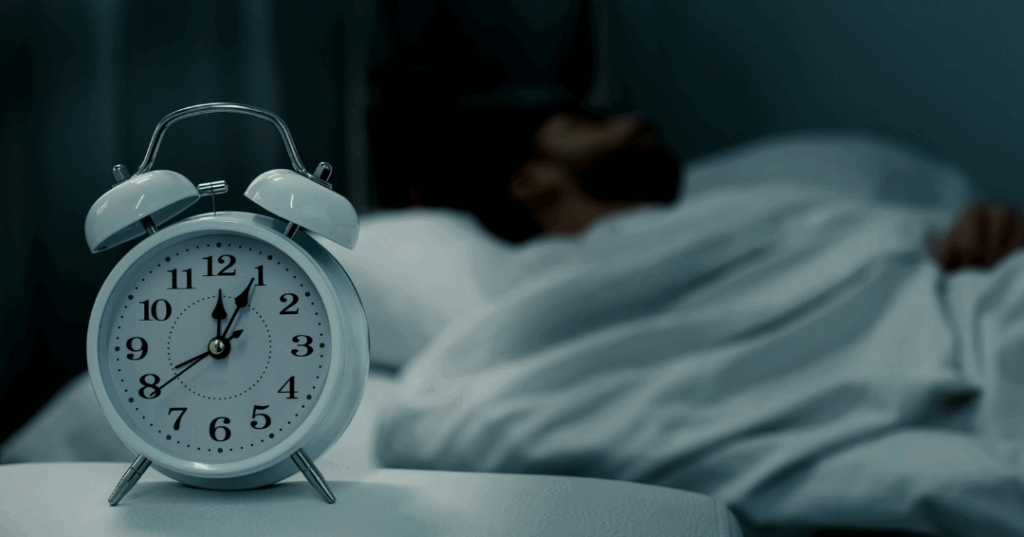Sleep has been overlooked for many years ever since the invention of the artificial light by Thomas Edison. Modern day society tends to prioritise work, leisure and travel rather than sleep. Most recently, Singapore made the world’s headlines by being the most fatigued country in the world. So, what are we doing wrong when it comes to sleep? For starters, these are the most common sleep mistakes.
Not to worry, we have included sleep hacks that you can implement right away if you are guilty of making these mistakes.
1. Using your gadgets before bed
At least 95 percent of people use some kind of electronic device — TV, a computer, a phone or a tablet — within an hour of bedtime, according to the National Sleep Foundation. However, these gadgets emit blue light which will inhibit the production of melatonin, the sleepy hormone to help you fall asleep and stay asleep.
Solution: Make sure you have a power down hour. Try to avoid using your gadgets at least 1 hour or 30 mins before bedtime.
2. Drinking caffeine and having midnight snacks
Caffeine is a stimulant and it can affect your sleep. It has a half-life of 6-8 hours. So, make sure you try to avoid caffeine-consumption after 2pm so it doesn’t disrupt your sleep at night.
Refined sugars and processed food can stress the organs in charge of hormone regulation – causing you to wake in the night as your levels fluctuate.
Solution: Snack on foods that contains tryptophan. This amino acid is needed by the body to produce serotonin, which in turn makes melatonin.
3. Sleeping at odd hours
A lot of people often sleep at irregular hours but studies have shown that the timing of sleep matters, and it’s best to sleep as much as possible during hours of darkness.
Sleeping at night helps align the body’s circadian rhythm or internal clock, with its environment. Proper circadian timing is critical for sleep quality and affects mental health, cardiovascular function, metabolism, and other key elements of overall health. If you always sleep at different hours, you are severely disrupting your body clock and that’s not a good thing in the long run.
Solution: Go to bed at the same time and wake up at a fixed time whenever is possible. It will anchor your sleep and improve the quantity and quality of your sleep. The reason is that deep within your brain, you have a master 24-hour clock. It expects regularity and works best under conditions of regularity and controls your sleep/wake schedule.
4. Sleeping too hot
Part of the body’s process of falling asleep is reducing its temperature. So, if the room is too hot, you will find it uncomfortable and will have a hard time falling asleep.
Solution: Keep the room cool and well ventilated. Your brain and body needs to drop the temperature by 1 degree Celsius to fall asleep and stay asleep. It’s easier to sleep in a room that’s too cold than too hot. About 18 degree Celsius is what the experts recommend, but if you find it too cold, anything between 20-25 degree Celsius is also acceptable.
5. Stop saying you can’t sleep!
If you don’t think you are a great sleeper, then you won’t be one. It’s just how it is. If you keep stressing about sleep, then you are just reinforcing that mantra in your head and turning it into a reality when bedtime comes.
The more you stress and worry about having just the right sleep routine or following the rules so exactly, the tougher it is for your body to relax, which is what triggers all the internal chemical processes in the brain and the rest of the body that initiate sleep.
Solution: Relax, meditate and pray. Jump into a better relationship with sleep. Listen to your body and have a positive loving relationship with sleep.

Author: Zoe Chu
Founder of Your Sleep BFF
References:
https://ph.news.yahoo.com/singapore-listed-most-fatigue-country-in-the-world-survey-033247000.html
https://www.sleepfoundation.org/professionals/sleep-americar-polls/2011-poll-technology-and-sleep
https://www.nigms.nih.gov/education/fact-sheets/Pages/circadian-rhythms.aspx
https://www.healthline.com/health/sleep/best-temperature-to-sleep
All information is accurate at the time of publishing.

